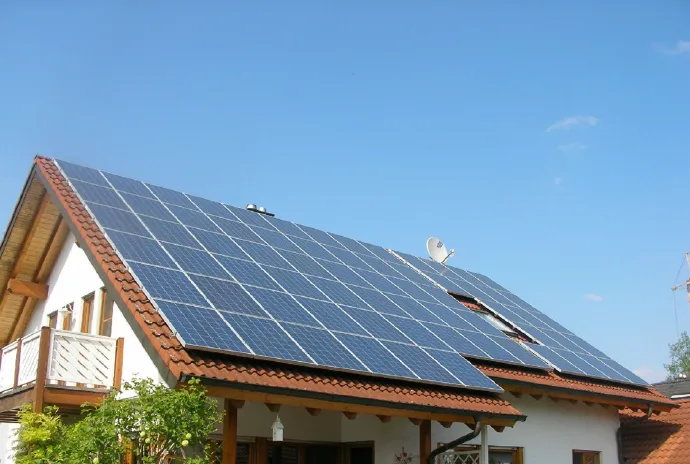Harnessing the Power of the Sun: A Comprehensive Guide to Solar Energy
Solar energy is rapidly becoming one of the most popular and accessible sources of renewable power worldwide. As concerns about climate change and energy sustainability grow, more homeowners, businesses, and governments are turning to solar power as a clean, efficient, and cost-effective solution. This article explores the fundamentals of solar energy, its benefits, applications, and what you need to know to make the switch.
What Is Solar Energy?
Solar energy is the radiant light and heat from the sun that is harnessed using a range of technologies, such as solar panels, solar thermal systems, and photovoltaic cells. This energy can be converted into electricity or used for heating, making it a versatile resource for both residential and commercial use. The process of capturing solar energy is not only environmentally friendly but also increasingly affordable thanks to advancements in technology and government incentives.
How Do Solar Panels Work?
Solar panels, also known as photovoltaic (PV) panels, are the most common method for converting sunlight into electricity. These panels consist of multiple solar cells made from semiconductor materials, typically silicon. When sunlight hits these cells, it knocks electrons loose from their atoms, generating an electric current. This direct current (DC) is then converted into alternating current (AC) by an inverter, making it usable for homes and businesses.
The efficiency of solar panels has improved significantly over the years, with modern panels capable of converting over 20% of sunlight into electricity. Factors such as panel orientation, shading, and local climate can impact performance, but with proper installation, solar energy systems can reliably power everything from small devices to entire communities.
Benefits of Solar Energy
Environmental Impact
One of the biggest advantages of solar energy is its minimal environmental footprint. Unlike fossil fuels, solar power produces no greenhouse gas emissions during operation, helping to reduce air pollution and combat climate change. By switching to solar, individuals and organizations can significantly lower their carbon footprint.
Cost Savings
Although the initial investment in solar panels can be substantial, the long-term savings are considerable. Solar energy systems can drastically reduce or even eliminate electricity bills, and many regions offer net metering programs that allow users to sell excess energy back to the grid. Additionally, government tax credits, rebates, and financing options make solar more accessible than ever.
Energy Independence
Relying on solar power reduces dependence on non-renewable energy sources and volatile energy markets. With solar panels, users can generate their own electricity, providing greater control over energy costs and enhancing resilience during power outages or grid failures.
Applications of Solar Energy
Solar energy is incredibly versatile and can be used in a variety of settings:
-Residential Use: Homeowners can install rooftop solar panels to power their homes, heat water, and even charge electric vehicles.
-Commercial and Industrial Use: Businesses use solar energy to lower operational costs and demonstrate corporate responsibility.
-Agricultural Use: Farmers employ solar-powered irrigation systems, greenhouses, and livestock watering solutions.
-Remote and Off-Grid Applications: Solar energy is ideal for powering remote cabins, telecommunications equipment, and disaster relief efforts where traditional electricity is unavailable.
Is Solar Energy Right for You?
Before investing in solar energy, consider the following factors:
-Sunlight Availability: Solar panels perform best in areas with abundant sunlight, though modern systems can still generate power in less sunny regions.
-Roof Condition and Space: Ensure your roof is structurally sound and has adequate space for panel installation.
-Local Regulations and Incentives: Research local policies, permits, and financial incentives that may affect your solar project.
-Budget and Financing: Evaluate upfront costs, available financing options, and projected savings to determine affordability.
Consulting with a reputable solar installer can provide personalized insights and help you make an informed decision.
The Future of Solar Energy
The future of solar energy looks bright, with ongoing innovations aimed at improving efficiency, storage, and integration. Advances in battery technology, such as lithium-ion and flow batteries, are making it easier to store solar energy for use during nighttime or cloudy days. Additionally, emerging technologies like solar skins and transparent solar panels are expanding the possibilities for integrating solar power into buildings and everyday objects.
As solar energy continues to evolve, it will play an increasingly critical role in the global transition to sustainable energy. By embracing solar power, we can create a cleaner, more resilient, and economically viable future for generations to come.
Conclusion
Solar energy offers a practical, sustainable, and economically sound solution to meet the world’s growing energy needs. From reducing carbon emissions to providing energy independence and cost savings, the benefits of solar power are undeniable. Whether for residential, commercial, or innovative applications, solar technology is paving the way toward a brighter and more sustainable future. By understanding the basics and evaluating your options, you can take advantage of this powerful renewable resource and contribute to a greener planet.
Table of Contents
